Corpus Christi Blog
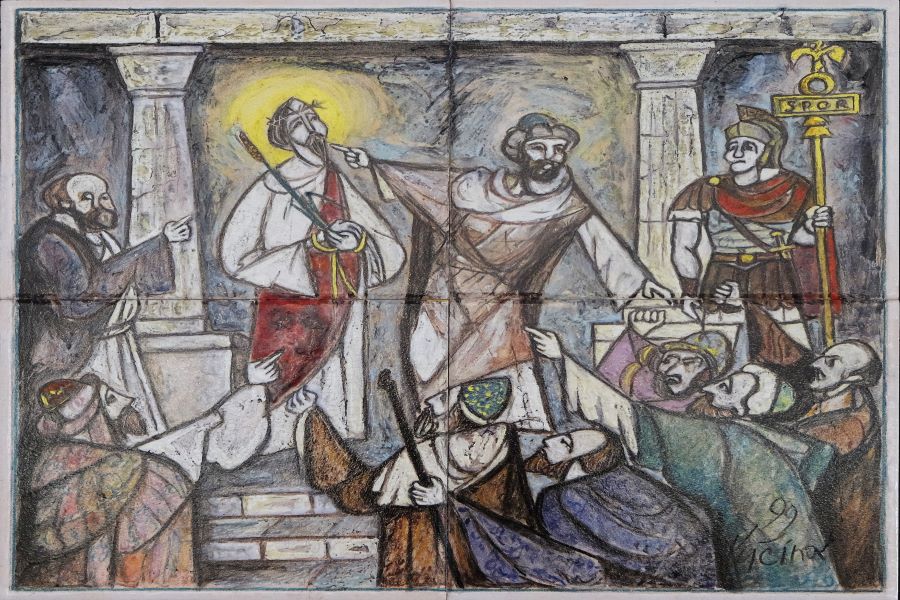
Barrabas and the Crowd
03-27-2022Weekly ReflectionJen Arnold, M.A. in Theology and CatecheticsAs we continue on our Lenten journey, examining the Passion of Christ through different perspectives, we will spend this week considering the events through the eyes of Barabbas and the crowd that called for his release.
The editors of the Catholic Bible Dictionary rightly found Barabbas a significant enough character to create an entry on him, which provides an excellent summary of who he was:
READ MORE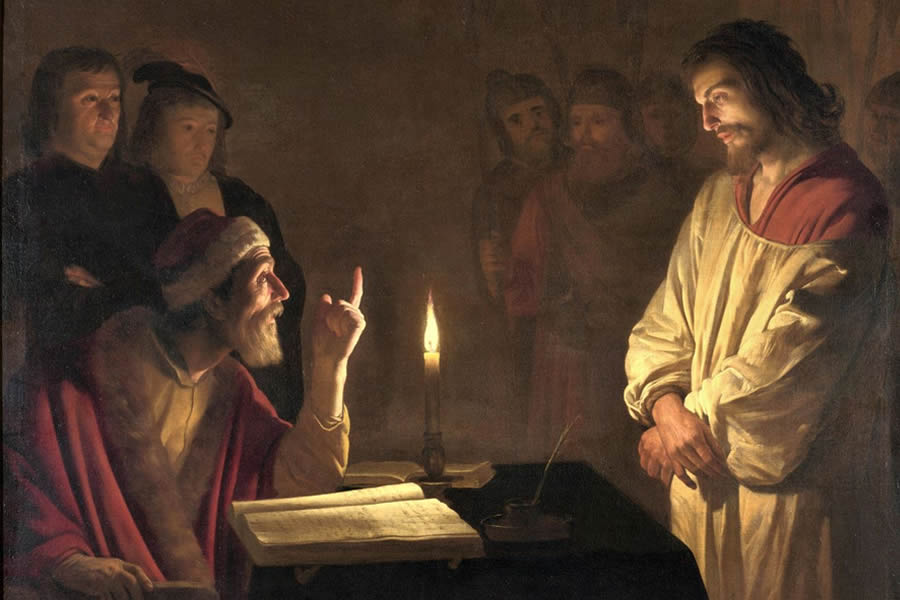
Caiaphas
03-20-2022Weekly ReflectionJen Arnold, M.A. in Theology and CatecheticsThis week, we examine the passion of Christ from the perspective of Caiaphas, the high priest responsible for initiating the arrest, interrogation, and crucifixion of Jesus.
Judea was part of the Roman Empire, which is why the Roman governor was sent to govern the area from a civil and political point of view. However, the Jewish people were allowed to continue to practice their religion so long as the Roman government had the authority to appoint a high priest of their choosing. The high priest was then expected to keep the people in line, so to speak, so the Roman government did not have to worry about a religious uprising or revolt. Because of this relationship with the government, the high priest had a great deal of power and influence within the community. The appointed high priest at the time of Jesus’ crucifixion was Caiaphas, son-in-law of the former high priest, Annas.
READ MORE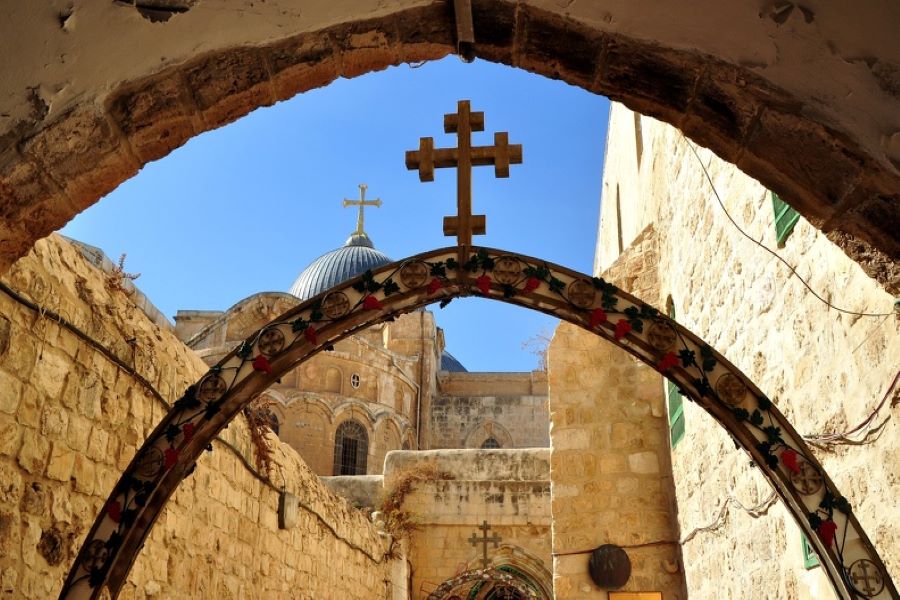
Pontius Pilate
03-13-2022Weekly ReflectionJen Arnold, M.A. in Theology and CatecheticsPontius Pilate could be considered one of the most complex characters in this portion of the gospels. He was the Roman-appointed governor of Judea from 26/27 AD – 36/37 AD. During his administration, there was a lot of tension between the Romans and the Jewish people, so when Jesus was brought before him, with the crowd’s insistence that He be crucified, he likely felt a lot of pressure coming from every direction. Certainly many, if not all of us, have found ourselves in situations where discerning the correct answer has been difficult. Perhaps you have had to mediate between two friends or family members. Or perhaps you’ve found yourself voting for “the lesser of two evils” in an election. However, you have experienced these types of difficulties, you are surely aware that often the right answer is not always glaringly obvious in the moment, even if it becomes more obvious in retrospect.
READ MORE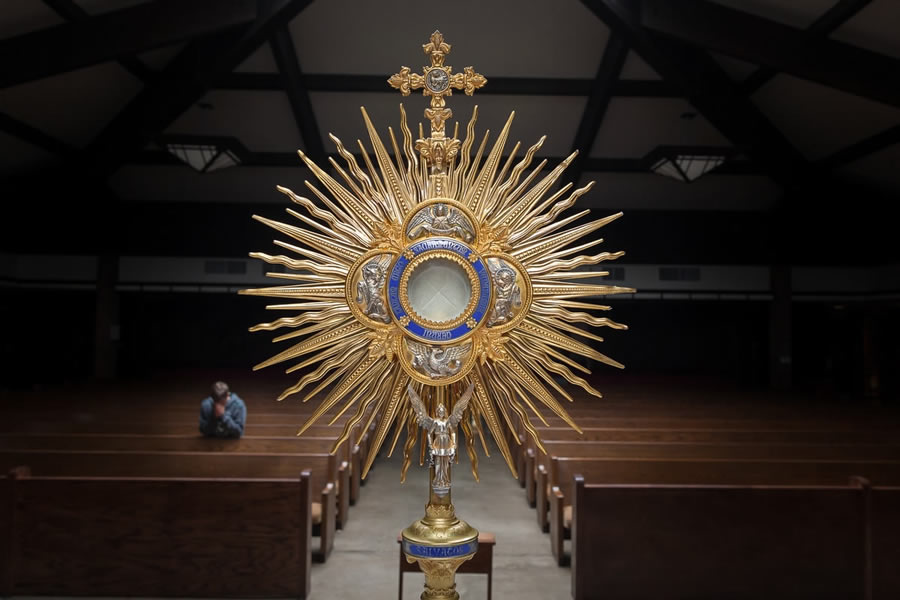
Remain Here and Watch with Me
03-06-2022Weekly ReflectionThere are many methods we can use while reading sacred scripture to increase its penetration into our hearts and souls. In fact, multiple methods should be interchanged and used frequently. For example, you can pray scripture, you can meditate on a single phrase or word, you can study its historical context, or you can reflect on a particular passage’s symbolic meaning or spiritual reality. The list of ways to engage with scripture in a very meaningful way is long. For this year’s Lenten reflection series, we are going to employ a technique with which you may be less familiar: placing yourself in the shoes of one of the characters of the story.
We are going to begin this series with Peter and the sons of Zebedee, James and John. After the Last Supper, Jesus specifically invited these three apostles to join Him while He prays in preparation for His coming Passion. At this point, Jesus is overwhelmed with agony and other emotions as He anticipates the terrible things that await Him very soon. He does not hide these feelings from His friends and says to them, “My soul is very sorrowful, even to death; remain here, and watch with me” (Matt 26:38, Mk 14:34). After going off to pray for a while, Jesus returns to His friends to find them sleeping. He awakens Peter, James, and John and says to them, “So, could you not watch with me one hour? Watch and pray that you may not enter into temptation. The spirit indeed is willing, but the flesh is weak” (Matt 26:40-41). As Jesus goes back into prayer, the apostles fall asleep yet again.
READ MORE
Shrove Tuesday
02-27-2022Weekly ReflectionLent begins this week, and we will be kicking it off with Ash Wednesday. However, the Tuesday before Ash Wednesday is a day that is also steeped in tradition for us Catholics. Tuesday represents the last day of what is typically known as either Mardi Gras or Carnival. The specific day is known by several names including Fat Tuesday, or Shrove Tuesday. Today, we probably think of this as a day of indulgence and gluttony and as a way of treating ourselves before heading into 40 days of penance and self-denial, but historically, there is more meaning to the day and the development of traditions that have come from it.
Shrove Tuesday is the last day of what used to be a week-long celebration, called Shrovetide. “To shrive” means to hear confessions. Around the year 1000 AD, a bishop by the name of Theodulphus wrote, “In the week immediately before Lent everyone shall go to his confessor and confess his deeds and the confessor shall so shrive him as he then may hear by his deeds what he is to do in the way of penance.” Thus, Shrovetide was a way to prepare for the upcoming Lenten season by examining one’s conscience so as to know the best way to focus one’s Lent for the purpose of penance and bettering oneself. If during Shrovetide you find that you are struggling a lot with a particular sin through the confession process, you will have a better idea of what to give up for Lent or what sacrifices you will have to make to help nip that sin in the bud. Shrove Tuesday, then, marks the day of your last hoorah with those particular sins while you head forward into working on the opposite virtue.
READ MORE
Blessed are You...
02-20-2022Weekly ReflectionKathleen Foley, Director of Mission AdvancementThe annual Charity and Development Appeal (CDA) in the Diocese of Phoenix provides opportunities for people like you and me to make a big difference in the lives of people we may never meet. This year, we hear in Saint Luke’s Gospel a beautifully succinct description of the beatitudes.And raising his eyes toward his disciples he said:
READ MORE
Blessed are You
02-13-2022Weekly Reflection“Blessed are you who are poor…hungry…weeping. Rejoice and leap for joy on that day,your reward will be great in heaven!”
Luke 6:20-23
The Beatitudes provide us with a roadmap to happiness. Do we see Jesus in the poor, hungry, sad, and excluded? Jesus calls us to tend to one another with dignity and compassion. The Beatitudes teach us about God’s mercy, forgiveness,and our ultimate reward in heaven!
https://www.youtube.com/watch?v=FSHQz85TUkY
READ MORE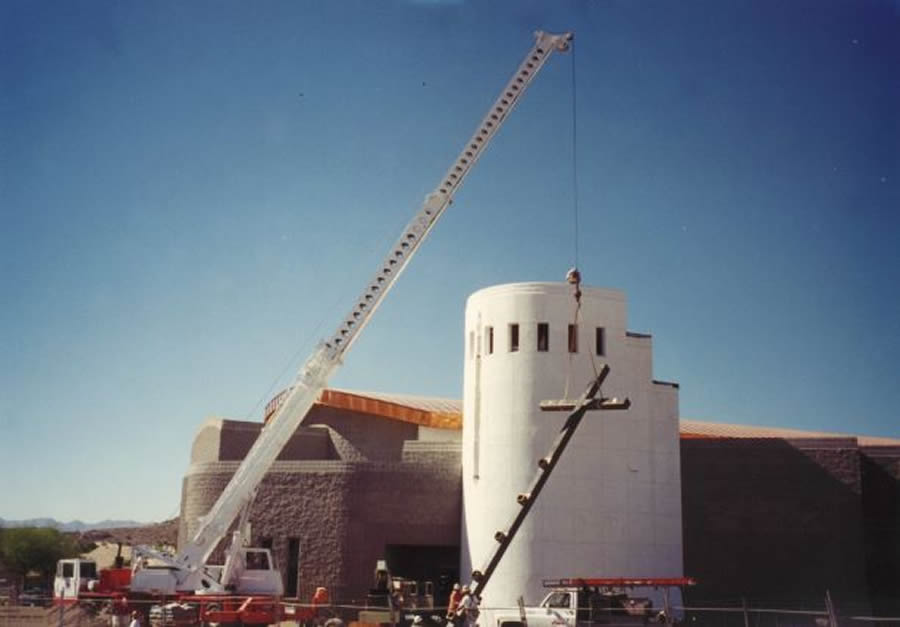
Happy 25th Anniversary of our Church Building’s Dedication!
02-06-2022Weekly Reflection(This article includes excerpts from a booklet compiled by John Rajczyk and James Warthman in 2000.)
In June 1987, [35 years ago!] the location of our new parish was changed from the site on San Gabriel Ave. to the new site on Knox Rd and 36th St. Although our site on San Gabriel was beautiful, it also had insurmountable problems, such as low visibility compared to other parishes and the high volume of traffic in and out of a residential neighborhood. These factors, plus others, dictated that we try to seek another site.
Our thanks go to Frank Labriola and his late wife, Mary, for their generous contribution of land to Corpus Christi Catholic Church. Their donation saved the church a tremendous amount of money. Without their contribution, there would have been a delay in the starting date for the buildings.
READ MORE
Grace
01-30-2022Weekly ReflectionJen Arnold, M.A. in Theology and CatecheticsGrace is a word we hear a lot of in the context of our Christian faith. We know that God bestows His grace on us and we often ask for just that. However, sometimes it may seem to be an abstract concept. Most Christian religions all agree that “Grace is favor, the free and underserved help that God gives us to respond to his call to become children of God, adoptive sons, partakers of the divine nature and of eternal life” (CCC #1996). In other words, being the sinners that we are, we do not deserve or somehow earn God’s favor and help, rather, it is something He gives to us simply because He wants to help us on our path to salvation. While most of us do agree that grace is a free gift of help from God, the Catholic faith has a much deeper understanding of grace, even going so far as to identify different types of grace. Let’s examine what the Magisterium teaches us about grace.
READ MORE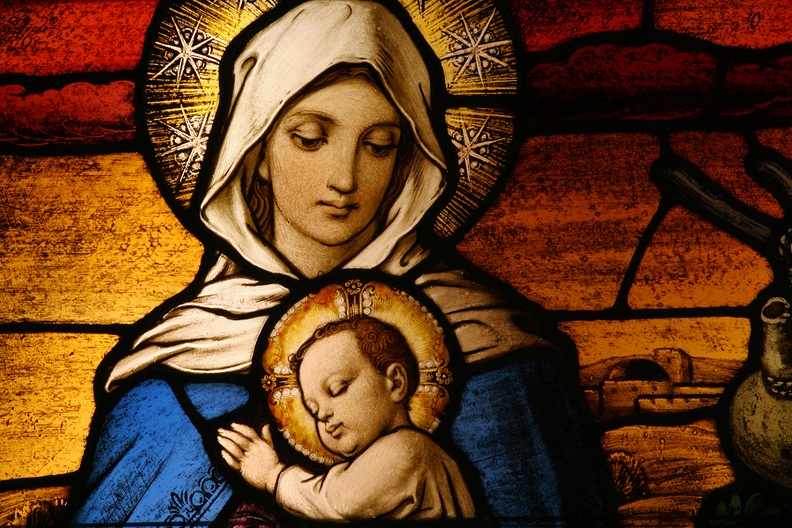
The Word "Until"
01-23-2022Weekly ReflectionJen Arnold, M.A. in Theology and CatecheticsThe Catholic Church teaches that our Blessed Mother, Mary, was a perpetual virgin, meaning she was a virgin when she conceived Jesus, but also remained one after His birth. There is a scripture verse that is very commonly used to argue against this particular teaching which reads: “When Joseph woke from sleep, he did as the angel of the Lord commanded him; he took his wife, but knew her not until she had given birth to a son. And he called his name Jesus” (Matt 1:24-25). The premise of the argument is that the word until suggests that there is a change in status after an event. Today, we’ll do some apologetics and unpack why this is not necessarily true.
READ MORE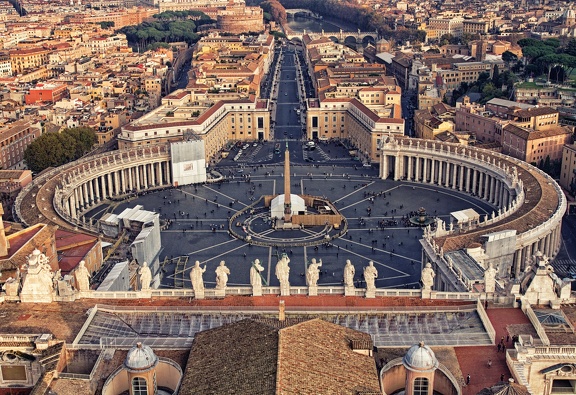
The Hierarchy of the Church
01-16-2022Weekly ReflectionJen Arnold, M.A. in Theology and CatecheticsYou’ve probably noticed that the Catholic Church has a great deal of structure to it, particularly when compared to other Christian denominations. Contrary to popular modern social structures, the Church has a hierarchical order to it. Let’s take a look at why we have a hierarchy and how it serves our greater good.
READ MORE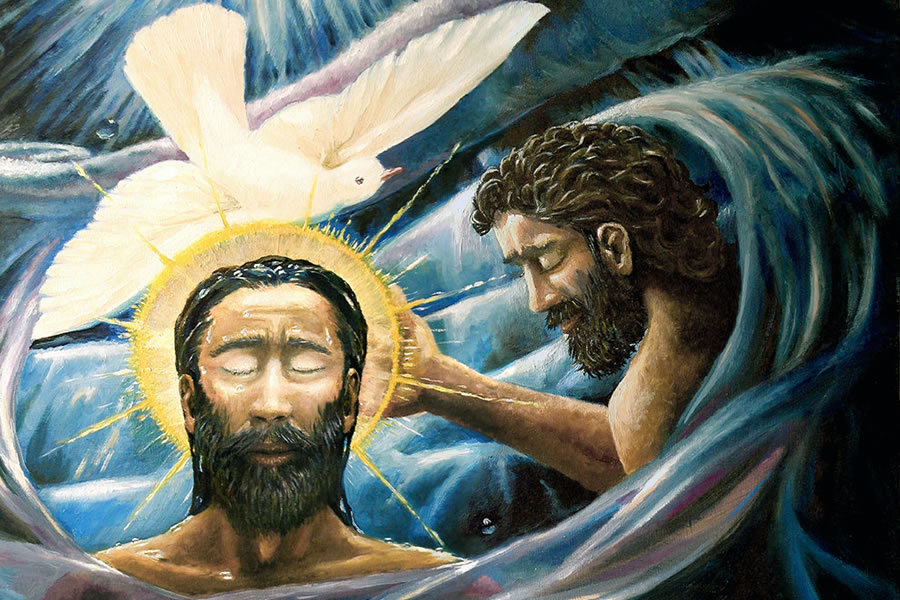
Saint John the Baptist
01-09-2022Weekly ReflectionJen Arnold, M.A. in Theology and CatecheticsToday the Church celebrates the Baptism of Jesus. Baptism is the first Sacrament of Initiation by which we enter the Church and become an adopted child of God. Jesus, who did not need to be baptized, did so as an example for us to follow. While most of us are familiar with the concept of Baptism, how much do we think about John the Baptist and what his role in the life of Christ means for us? At every Mass, the priest speaks the words of the Baptist when he says, “Behold the Lamb of God who takes away the sins of the world.” This reinforces just how significant a figure John is in our salvation history.
READ MORE
The Rosary
01-02-2022Weekly ReflectionJen Arnold, M.A. in Theology and CatecheticsWe begin each year with the Solemnity of Mary, the Holy Mother of God. (It was not a holy day of obligation this year since it fell on a Saturday.) As Catholics, we hold Mary in very high regard and we are all called to a particular devotion to her. One of the most important devotions to Mary is the Rosary. It provides a way for us to walk through the life and miracles of Jesus’ life, honoring Mary for her devotion to God and her faithful motherhood of Christ.
READ MORE